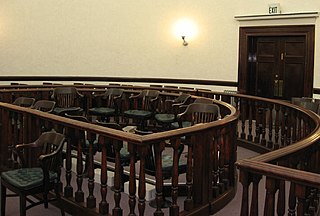| Bill Name | Date of report | BORA inconsistencies | Refs |
|---|
| Affordable Healthcare Bill | 16 September 2015 | 19 – Freedom from discrimination (family status, national origins) | [1] |
| Alcohol Reform Bill | 8 November 2010 | 14 – Freedom of expression
19 – Freedom from discrimination (family status)
22 – Freedom from arbitrary arrest or detention
25c – Presumption of innocence
27 – Right to justice | |
| Auckland Regional Amenities Funding Bill | 19 September 2007 | 19 – Freedom from discrimination (disability) | |
| Child Protection (Child Sex Offender Register) Bill | 13 August 2015 | 9 – Right not to be subjected to torture or cruel treatment
26(2) – Double jeopardy | [2] |
| Criminal Investigations (Bodily Samples) Amendment Bill | 10 February 2009 | 21 – Unreasonable search and seizure | |
| Eden Park Trust Amendment Bill | 8 April 2009 | 19 – Freedom from discrimination (disability) | |
| Electoral (Disqualification of Convicted Prisoners) Amendment Bill | 17 March 2010 | 12 – Electoral rights | |
| Electronic Monitoring of Offenders Legislation Bill | 13 May 2015 | 18(1) – Freedom of movement
21 – Unreasonable search and seizure
26(2) – Double jeopardy | [3] |
| Financial Assistance for Live Organ Donors Bill | 21 July 2015 | 19 – Freedom from discrimination (employment status) | [4] |
| Head of State Referenda Bill | 21 April 2010 | 19 – Freedom from discrimination (age) | |
| Human Rights (One Law for All) Amendment Bill | 28 June 2006 | 19 – Freedom from discrimination (colour, race, ethnic or national origin)
20 – Rights of minorities | |
| Human Tissue (Organ Donation) Amendment Bill | 29 March 2006 | 19 – Freedom from discrimination (age, disability) | |
| Land Transport Amendment Bill | 19 November 2013 | 25c – Presumption of innocence | |
| Land Transport (Admissibility of Evidential Breath Tests) Amendment Bill | 17 October 2012 | 25c – Presumption of innocence | |
| Liquor Advertising (Television and Radio) Bill | 2 July 2009 | 14 – Freedom of expression | |
| Lobbying Disclosure Bill | 12 June 2012 | 14 – Freedom of expression | |
| Local Electoral (Māori Representation) Amendment Bill | 16 June 2010 | 19 – Freedom from discrimination (race) | |
| Manukau City Council (Control of Graffiti) Bill | 7 December 2005 | 19 – Freedom from discrimination (age)
23(4) – Right to refrain from making a statement | |
| Manukau City Council (Control of Street Prostitution) Bill | 7 December 2005 | 23(4) – Right to refrain from making a statement | |
| Marriage (Gender Clarification) Amendment Bill | 11 May 2005 | 19 – Freedom from discrimination (marital status, sexual orientation) | |
| Misuse of Drugs Amendment Bill | 23 April 2010 | 25c – Presumption of innocence | |
| Misuse of Drugs (Classification of BZP) Amendment Bill | 22 August 2007 | 25c – Presumption of innocence | |
| New Zealand Public Health and Disability Amendment Bill (No 2) | 16 May 2013 | 27(2) – Right to a judicial review of a determination | |
| New Zealand Superannuation and Retirement Income (Pro Rata Entitlement) Amendment Bill | 21 July 2015 | 19 – Freedom from discrimination (national origin, age)
18(3) – Right to leave New Zealand | [5] |
| Parole (Extended Supervision Orders) Amendment Bill | 2 April 2009 | 22 – Freedom from arbitrary arrest or detention
26 – Retroactive penalties and double jeopardy | |
| Parole (Extended Supervision Orders) Amendment Bill | 17 April 2014 | 26 – Retroactive penalties and double jeopardy | |
| Prisoners' and Victims' Claims (Redirecting Prisoner Compensation) Amendment Bill | 13 October 2011 | | |
| Sentencing and Parole Reform Bill | 18 February 2009 | 9 – Right not to be subjected to torture or cruel treatment | |
| Smoke-free Environments (Removing Tobacco Displays) Amendment Bill | 22 September 2010 | 14 – Freedom of expression | |
| Social Assistance (Future Focus) Bill | 24 March 2010 | 19 – Freedom from discrimination (sex, marital status, family status) | |
| Taxation (Income-sharing Tax Credit) Bill | 16 August 2010 | 19 – Freedom from discrimination (marital status, sex) | |
| Wanganui District Council (Prohibition of Gang Insignia) Bill | 20 February 2008 | 14 – Freedom of expression | |







